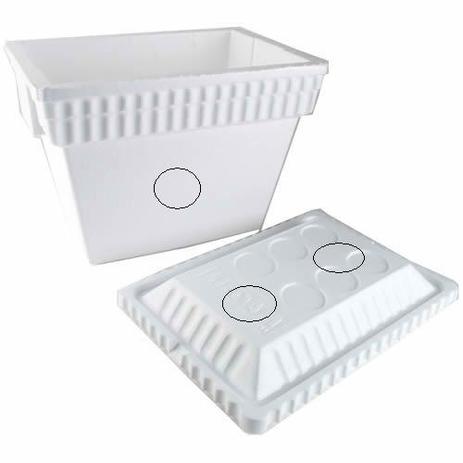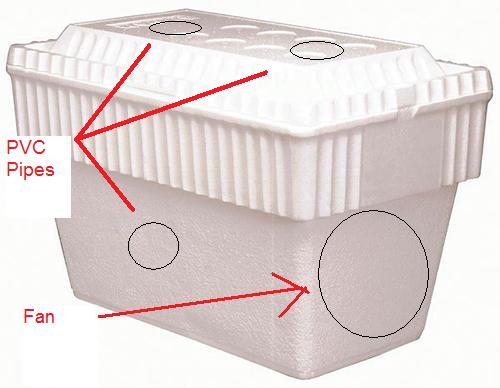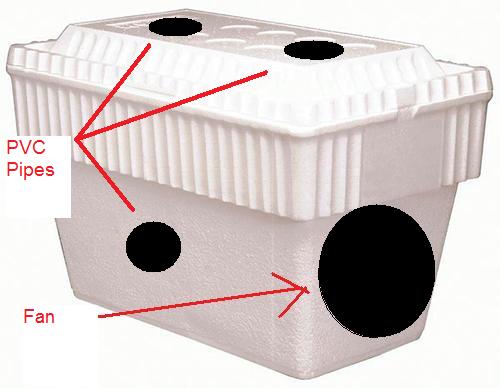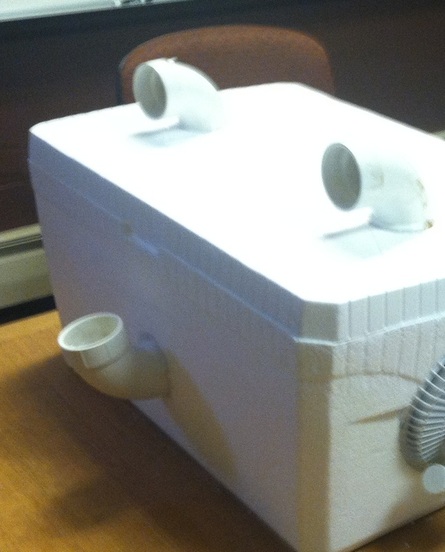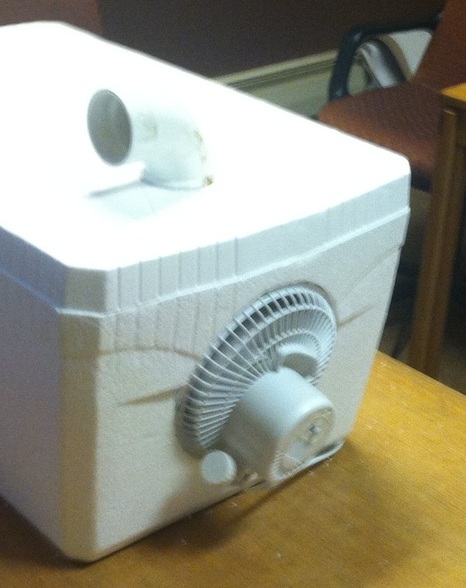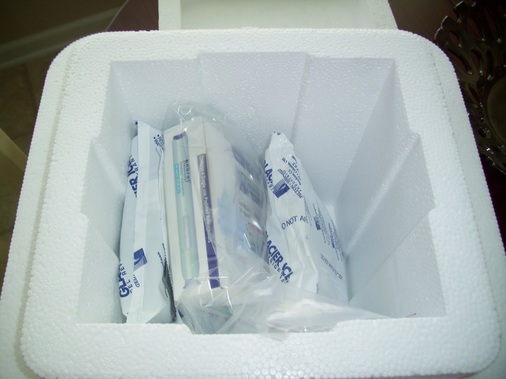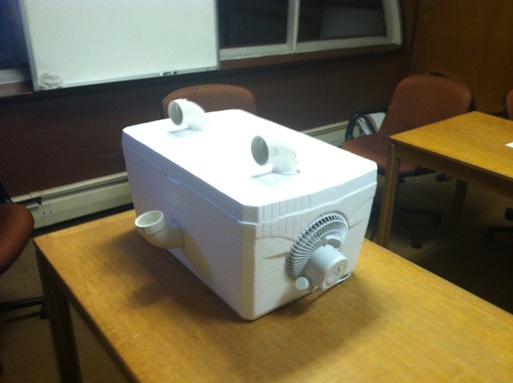YouthBuild Just-A-Start and 18 Other AmeriCorps Programs to Receive $10M from Mass Service Alliance7/30/2013 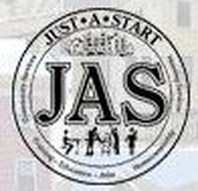 YouthBuild Just-A-Start of Cambridge and 18 other AmeriCorps programs in Massachusetts have been selected to receive a dividend of $10,000,000 for the upcoming 2013-2014 program year, massnonprofit.org reported last week. The awards will be allocated by the Massachusetts Service Alliance (MSA), a nonprofit that promotes and supports service and volunteerism by investing in local community-based organizations. According to the report, the funding will enable 1200 AmeriCorps members in various organizations around the state to take part in number of capacity-building and direct-service activities that include "providing support to children from preschool through high school graduation, addressing environmental and land conservation needs, recruiting volunteers and strengthening the capacity of the nonprofit sector, and upgrading affordable housing for low-income families and for homeless and disabled veterans." Since 1994, YouthBuild Just-A-Start has served underprivileged youth in the communities of Cambridge and Chelsea as one of the MYBC's most innovative sites in Massachusetts. As a member of the program, students not only have the option to pursue the traditional construction/GED route, but through a partnership with Cambridge Rindge and Latin High School and Bunker Hill Community College, the opportunity to earn their high school diploma and/or follow the program's healthcare career track. The funding they're due to receive from MSA this coming year will go to supporting their exemplary outcomes that include (since '09):
(taken from the most recent round of data: 2009-2012) Read the original article on massnonprofit.org Find out more about YouthBuild Just-A-Start at youthbuildjustastart.org Related: YouthBuild Just-A-Start is hiring!
0 Comments
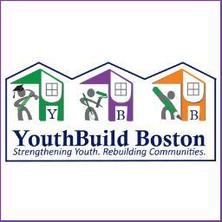 Peter Hinrichs, former Landscape Manager at YouthBuild Boston, was one of 28 across New England recently recognized by the US Environmental Protection Agency at this year's Environmental Merit Awards. Since 1970, the ceremony has allowed the EPA to honor individuals who have contributed to the environmental health of a specific region in a unique way. “The people, communities and businesses being recognized today are leaders in helping create a cleaner environment and healthier communities across New England,” said Curt Spalding, regional administrator of EPA New England. Hinrichs, who now heads a horticultural program at the Learning Prep School in Newton, was honored for his dedication to environmental problem-solving and awareness -- specifically for his work "educating urban young adults on the importance of the environment as it relates to everyday life. This educational effort was accomplished through workforce training in horticulture, design and landscape construction and developing hands-on projects which the students implemented and learned from." While at YouthBuild Boston, Hinrichs played an important part in the EPA's campaigns to promote rain gardens and cut down on storm water pollution. During his time as Landscape Manager, he worked with YBB students to install rain gardens all over the city, and received much attention from a project done in collaboration with YouthBuild Lowell that saw 300 trees planted along the driveway of the EPA's New England Regional Laboratory in North Chelmsford this past fall. Throughout his career, Hinrichs has used his background in education and passion for sustainability to convey to his students the importance of the environment as it relates to everyday life. Using his experience in design, education, construction, and landscaping, Hinrichs hopes to usher in the next generation of sustainable thinkers, while contributing to an increasingly environmentally-conscious world in the process. Sometimes fans won't cut it. That’s the conclusion the staff and students of YouthBuild New Bedford came to after two heat waves and twelve days above 90 degrees. It was a conclusion that led them to a fairly simple and cost-effective solution to their problem: build an air conditioner. You’re probably thinking, “That’s hardly a simple solution. An air conditioner is a complex machine.” It’s not. Really, the following step-by-step guide will prove it. So if your fans and open windows aren’t getting the job done, and there’s no room in your budget for central air (HA!), this DIY A/C guide will save you from some embarrassingly sweaty days come the next heat wave. Materials: 1 Styrofoam cooler 1 Small fan 3 elbow PVC pipe fittings 10 lbs ice 1 Utility knife Before you continue: Warning: Author lacks graphic design skills. Any questions regarding this post can be addressed to: [email protected] Step 1: Using a marker, trace two evenly spaced circles equal to the circumference of your PVC pipe fittings on the cover of your Styrofoam cooler, and one in the middle of its front, like so: Note: The location and number of PVC pipes can vary depending on personal preference. (Some DIY A/C’s use as little as one, others show as many as three – all in numerous locations.) Step 2: Trace a hole equal to the circumference of your fan on the side of your coolerNote: The location of your fan can also vary (side, back). Step 3: Cut out every traced hole, for the pipes and fan, using your utility knife
Note: If you don’t want to keep buying ice, you can use ice packs, or fill some water bottles and freeze/re-freeze them as needed.
Note: The air won't be cold right away. Be patient, it'll be worth it.
Like Mass YouthBuild Coalition on Facebook | Follow Mass YouthBuild Coalition on Twitter 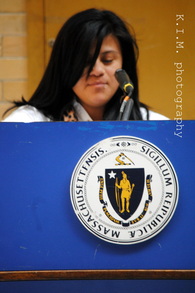 10 years ago, Sthephany Garcia's mother returned to Honduras from the US for her children. "We're moving. We're going to be a family again," she told them. During Sthephany's trip to the US, and in the years that followed, she endured hard times and was forced to make some difficult choices -- ones that she admits weren't always right. But her decision to join YouthBuild, she claims, was the most life-changing one she's ever made. Find out how Sthephany turned her life around in this inspiring issue of In Their Own Words. Okay, Sthephany, why don’t you start by telling me a little bit about your background – where you grew up, what your family is like… Well, I was born in a little pueblito (small house) in Honduras, and at the age of 9, my two brothers, my mother, and I immigrated here. When I first got here, just like a lot of kids that went through what I went through, I didn’t know English and I had to start from zero. I started school in fourth grade. That year I stayed back, but the teacher I had was awesome. She saw something in me, so she really helped me out. Within two years, three years or so, I got to understand and speak English. Wow, that’s quick. You speak very well. Thank you, yeah, I was 9 then, I’m 19 now. It’s only been ten years. After that I graduated middle school. Once I got to high school the streets came into my life -- I guess that’s a way to say it -- and school wasn’t my focus anymore. I guess I started living the American way. When I say that I mean, in my culture the main thing is education. Without education you can’t get anywhere, especially in my family. School, church, and family are the three main things in life, but once I came here, things completely changed. I guess it’s like a whole new generation. So when you say the American way, can you elaborate? I mean, let’s be honest. For a lot of kids, education is not the main thing. Money is the main thing. So, you lose focus. We look at it like, in school we’re not going to be taught how money works. Why am I going to go to school if they’re not teaching me life? I wasn’t thinking like that before I came to America for an opportunity, but I lost track. That’s when I fell off in school. I started fighting, getting into stupid stuff. I completely lost track of who I was. Then one day I heard of YouthBuild, and what caught my attention was that they pay you. I didn’t know anything about YouthBuild, but I showed my mom and told her I wanted to attend YouthBuild Fall River. I went there for two years. When I first got there it was like a regular school. I didn’t get close to the teachers because before YouthBuild I was very quiet, so for me to open up, it’s not happening. You’re going to know my name and that’s it. Then one day in the middle of the year, Mr. Ramos came up to me and told me and told me I wasn’t going to get paid. The reason for that was my social security number was not social security, it was an ITIN number, which is a number that we get so we can pay taxes. I was sixteen years old. The only thing I heard was “You can’t get paid.” I didn’t understand why, so I dropped out, I stopped going. Then I saw that same teacher one day three months later and he acted as though I was still welcome in YouthBuild, like they were waiting for me. There’s no other school – well, the public school I went to never did that, if anything it was like they made me signs to get out. So how many years did you spend in public school? Only one year. And you felt like they talked you out of high school? I mean, it’s not like I was even all for it anyway, you know? They just didn't want to deal with me anymore because I was not being good. I’m not going to lie, I was being horrible. I was going in when I wanted and they said to me, “Why are you wasting time?” So when I heard Mr. Ramos say, “Why did you never come back? We need you, we’re a family,” it was strange. I had never heard those words before, honestly. Nobody’s been interested in helping me like that besides my family, so a stranger saying that – because at the end of the day, teacher or not they’re still strangers – it was something I’d never experienced. Then one day I just decided to go back. I actually called Mr. Moran and at first I was a little shy because I thought, “How am I going to show my face after what I did to them?” There was that disappointment, they’re not going to want me back. But Mr. Moran, Mr. Ramos, and I also had Mr. Joseph – those three actually convinced the other teachers to give me an opportunity to come back. I’m not even on the books, and I didn't get paid. I was attending the program on a volunteer basis. The only reason I stayed was because they saw something in me. I see it now, but at the time I didn’t. So then I just went back and started living the experience. You know, sharing with people, listening to other people; and I thought, wow, these kids here…some of them are doing worse than me. When I say that I mean family-wise, because some of them were homeless. I have a good family. I have my mom and my dad. I’m not going to say my family is perfect because no family is perfect, but it’s definitely worth it. The support I was getting, in school and out of school, was just amazing. I was even chosen to speak at the State House. Oh yeah? How was that experience for you? It was really amazing. At first I was extremely nervous. I thought, “Oh my God, these people are not going to even care, maybe I wrote too much, I’m going to sound like I have a big head.” But then the teachers at YouthBuild Fall River comforted me. I built such a relationship with them that if I see them in the street it’s like they’re my uncles or something. They created Sthephany Garcia, they really did. I’m 19 years old and there’s a huge difference between when I stepped in there and now. What’s changed, what do you think is different about you now…qualities I suppose? The “believe”, an open mind, and the motivation. You learn how to love yourself. You’ll see these teachers loving you, so you think, “Well I’ve gotta love me too.” It takes a real soldier to fully experience YouthBuild. It’s hard to make it through because they pull you out of your comfort zone every day. How so? What do they do? At first they have these games…. Oh, you're talking about mental toughness? Yes, you know, at first I was kind of selfish with things – like, “This is my bubble and you’re not coming in it.” They helped me let other people in. It is a tough world out there, and it’s hard to trust people, but there are people that can be trusted out there. There’s that five percent out there. You either become part of that five percent or you don’t, and that’s the way it is. Do you think everyone in YouthBuild is part of that 5 percent? It takes a soldier to become part of that five percent. Like I said, not everybody is going to understand or live that experience. Some people are going to act like it’s another high school. And the construction, too! They used to have me out there in the cold! (laughs) I used to have crazy nails…long nails, and then I’d have to use a hammer and do all this stuff I never did before. I had Mr. Denfeld and Ms. Schmiedl and I used to tell them, “No way, are you guys kidding me, it’s too cold out.” They would say, “Oh, so you want to go home?” Then I would say, “No I’m going to stay and make it through the day.” So they challenge you and the next day it’s the same thing. So I take it construction isn’t something you’re interested in pursuing… (laughs) No, I don’t think so. Well did the construction aspect of the program change any part of you? It did. It did, because like I said, it took me out of my comfort zone…I mean I had to work with dirt and grass; and I’m very needy, so all that dirt and grass just wasn’t for me. I had to microwave my food and eat it with… well, whatever was there, and I don’t usually do stuff like that. But, it was all about the experience. (laughs) Sounds like it toughened you up a little bit though… It definitely did. We also went camping. I never in my life went camping. When he (Terry Moran) was there, we went camping, and we were out there for three nights and four days. I would never have done that. I would not go camping and sleep outside. I have a wonderful bed, so I’m not doing that. We also did some hiking, and now I love hiking. I love nature. I’ve actually been hiking four times already, and before that you never would’ve seen me out there in sneakers. The first time I went, I’m not going to lie, I was complaining. But after it was done I said, “I wanna go again.” It’s beautiful out there. You’re out there on your own; no cell phones, no anything, and it was like, “Okay, now I can breathe the air.” I’ve had some beautiful experiences there. Why did you choose YouthBuild? There are so many other GED programs out there, so what was it about YouthBuild that made you say, “This is the program for me”? Because I didn’t just choose it, it also chose me, you know? That’s how I see it. I don’t think any other program would’ve given me the opportunity because it was a risk having me there. And the relationships I built with the staff were amazing. I mean I have their phone numbers, you know? There’s no way that happens in a regular school. And I can go back to YouthBuild whenever. Anytime I need help with my resume I can go there; anytime I need a job, it’s them who I pull. I have gotten good jobs because of them. I worked as an independent sales agent. I was working for FIOS, for Verizon. I’m only 19 years old and everybody there was way older than me, but nobody would believe I was only 19. They would say, “Well you act so much older.” So, it’s amazing the way they prepared me. Okay, so you were in the program for two years and you got your GED in June 2012. What was it like getting your GED after preparing, studying and working so hard for those two years? It was a ticket to the most amazing ride ever. That’s how I look at it. When I was walking on the stage in my head I completely blacked out. I don’t know, I just feel like I’ve been through a lot in my life. I was born in this little pueblito, then after that I immigrated here. I was only nine years old but I experienced each and every moment of the road coming here, and it’s a tough road, you know? It’s a tough world out there. And the only person that was defending me was my mother, and as a female it’s also just as dangerous for her. So I feel like she’s given so much of herself for me, that even though it’s just a piece of paper, it means so much. It meant so much to her. I’m the oldest of three boys and one girl, so I’m always going to be their role model. Female or male it doesn’t matter, they look up to me. You sound like you had a lot happening before you came to YouthBuild. Your experience sounds so different from a lot of people’s stories, having come from another country, going through what you did. Is it something you feel comfortable with, elaborating on that experience of what it was like coming from another country? It was scary. Because, alright, I grew up in a little place, and like I said my mom and dad were already here (in the US). The street I grew up on, everything was on it, and in our house it was me and 14 of my other cousins, that’s the way we lived. Then one day my mom just came, well after six years, she came back and she said, “We’re moving. We’re going to be a family again.” So you were three when she left… Yes So you grew up not really knowing your mother or father? Well there were always phone calls, always pictures. There were always letters and boxes full of clothes. I never had to struggle. I look back and now and I think, “Okay I was living very poorly compared to how I’m living now,” but I wasn’t poor, I just have more now, you know? So that’s what it is. It’s a huge difference. My mom came and said that we were going to the dream land. That’s how America was known at the time. People thought there were streets made out of gold. I know, it sounds ridiculous. I had no idea where I was going but I didn’t care. We could’ve gone to the next block; all I wanted was to be with my parents. That night I remember we took a bus, and after that we took another bus, a train, a car, then another bus, and then we walked, and boom we got to Mexico. When we got to Mexico I got into a big accident. We were taken away from our mom. Honestly, my mom and I have never talked about this, but I felt like I was kidnapped, you know? That’s how I felt because I couldn’t talk to her for three weeks. Then we were taken to this family's house, I don't remember the name, and one day my brothers and I were playing with another little kid there and he pushed me and I fell over and split my head. I didn’t know my brothers went through this until months later when we talked about it, but I guess after that there was blood everywhere, then I don’t really remember. All I recall is hitting my head, then my cousin throwing me in the shower because we didn’t know what to do and I thought, “Oh my God, we’re going to be sent back.” The next thing I remembered was waking up in the hospital about a week later, and seeing that the name written on my medical bracelet was completely different, and everything was different. My age was different, I didn’t know where my brothers were, and the doctors were all speaking English. I thought, “What is going on?” Then they asked me my name and I looked at my bracelet, and I didn’t know. Now I know what it is, but at the time I didn’t know what it was. I didn’t know my name. I looked at the bracelet and I didn’t want to say “Sthephany” because I didn’t want to get in trouble. I guess that was one of the scariest parts of the trip. But after all that we finally – I remember we got dropped off at a McDonald’s in Houston, Texas. This is after the hospital, after I recovered. So as you were recovering, who was taking care of you? The people whose house I was staying at came and stayed with me, and checked me out of the hospital once I was recovered…because I was their “daughter,” I guess. When we finally left the hospital, they said, “We’re going to McDonalds, that’s where your father is waiting for you.” So after hearing that I said, “Let’s go now, I don’t care, I don’t have to change – blood on my shirt, I don’t care, let’s go.” So I was actually wearing the hospital gown because I didn’t have any clothes. Then we got to that McDonald’s and there he was, and after that it was great. Did you recognize him when you saw him? Yes, I recognized him because there was always communication between us, there were always pictures. Even though he wasn’t there physically, he was there emotionally for us. So, seeing him made everything I went through worth it. I decided to forget everything that had happened and to move on from there. Then after that, a week later, we went to Virginia, and that’s when I got to see my mom again. It had been a month since I had seen her; and, well, now here I am talking to you. That’s unbelievable. I’ve never heard a story quite like that one. (laughs) Well, it’s funny. I never knew I had a story until I got to YouthBuild, honestly. I didn’t know that all this was a story. I thought that’s just what everybody went through – they said that everybody immigrates to this country, so I thought everybody went through this. Wow. Well, thank you for sharing that story. You’re okay with me sharing this with everyone? Of course, it’s my story. People look at me and they think, “Oh, yeah, that’s that girl,” but I’m way more than that. Everybody has a story, and I think everybody’s story deserves to be out there. So if you have one, you should share it. Okay, so I want to change gears just a little bit. We were talking about getting your GED before, and your goals while in the program. I know that YouthBuild is really big on goal-setting – short term goals, long term goals. I’m curious, now that you've graduated, what are yours? When I left YouthBuild I had a short term goal and a long term goal. My short-term goal was to get my social security and my papers, and that’s a check. I don’t have to work under the table anymore; I’m legal. So check that off the list. Then my long-term goal is to be a lawyer or some type of counselor for girls who go through stuff I went through. Because between leaving Mexico and getting to the border, you can go through so much – being raped or even getting killed. When I got here there was nobody who sat with me and asked me, “So how do you feel today?” I guess you have to beat someone up and then you get sent to counseling, because that’s when they know you have a problem. But if you don’t act out, you’re not noticed. I just want to be that person that looks to somebody and says, “I want you to be noticed.” I want to be somebody that a girl can look up to and say, “If there’s hope for her, there’s hope for me.” Because some people look at me and think I’m just a regular girl, but it’s not like that. It’s beyond that. I’m not saying that I’m the most special, but I’m completely special. So that’s my long term goal. I’d even like it if I could be a real estate agent, or a teacher, or something – something that’s helpful for others. I actually signed up for Peace Corps. I got declined because I’m too young, but I’m going to sign up again. The essays you have to write and everything, they’re extremely long. They ask you these really deep questions, and I love deep questions, so I’ll get into detail; and I remember I brought it to YouthBuild before I submitted the application. I brought it to Ms. Rioux, Mr. Joseph, Mr. Denfeld, and Mr. Richardi…and I read it out loud. I was reading it for them because I needed their help to fix it. After I was done they looked at me like, “What is there to fix?! This is perfect.” And Mr. Denfeld, he’s a hardcore man, so when he said that I was so confident. I was confident they were going to call me, and I was ready to go away to a third world country and help other girls out, but I need more experience. I was still in YouthBuild when I heard about Peace Corps, and I thought, I’m extending this experience to that. I just want to be involved in something that helps the youth. Because I think I’ve been through everything. I went through getting here, and then through the drugs and being in the streets, and now I’ve turned my life around. It’s amazing. I think the coolest thing about a change is talking to an old friend. Because they look at you and say, “Girl, it’s only been a year!” And then I’d say, “Girl, a year. A minute. You could go through so much.” It’s beautiful. Do you think your desire to help youth came from YouthBuild, or do you think it’s more the result of everything that’s happened to you throughout your life? I think YouthBuild helped me develop it. It was always in me, but YouthBuild pretty much put the icing on the cake. That’s what they did. Because YouthBuild is not going to make a new person out of you, it’s going to bring out the good in you. Everybody has good in them. If you could give some advice to students now – or say you could go back in time and speak to Sthephany in mental toughness – what advice would you give her? Don’t measure your motivation, don’t measure your success, and don’t measure who you are, because we don’t know that. What I’m saying is, don’t limit your potential. It’s crazy how you can start so little and become so big. We’re all caterpillars that become butterflies. Somebody told me once, and I’ll never forget this, “Don’t take your foot off the gas.” Just keep going. Go, go, go, go. Never be satisfied. It’s good to hear advice, though. There’s a saying in Spanish that means, “If you don’t take advice, you won’t last.” Just be careful of where it’s coming from. Because now I look back and think, “Well why did I take advice from that person?” So look at where words are coming from, and when somebody uses them to try and hurt you, don’t pay attention. Just believe in yourself, love yourself, and know you’re the best. Do you have a favorite memory that sticks out for you, any particular meaningful moment from your time at YouthBuild? Well, when I got picked to talk at the State House, at first I thought, “There are people way better than me here. Once my friends find out they picked me, they’re all going to think I have a big head.” Because already the teachers were looking at me like I was the pet, but it wasn't like that. I just built an awesome relationship with them. There was this one day where I had to read my story in front of them, and I didn't know what their reactions were going to be. Don’t get me wrong, I was cool with every single person there, but you never really know how cool you are with somebody, especially when you’re sharing something so personal. And I was also in YouthBuild with my brother, so I was worried he might be offended at what I was about to say. But after I told my story, one by one, people started standing up and clapping. I was so happy. “They care,” I thought. After that, people were coming up to me and hugging me, and showing me all this acceptance – stuff that’s hard for teenagers to do – especially females, because we’re always in competition with each other. Getting a high five from my peers when I took that opportunity away from them – because any one of them could have spoken at the State House – made me feel like I deserved it. It made me feel so much better about going up to that stage and talking. That day was really special. So then let me ask you -- in the past several years there have been some budget cuts, and it’s becoming harder for Massachusetts YouthBuild programs to get funding. Less funding means our programs have to cut down on the number of youth they serve. If you could speak to everyone – senators, representatives, the governor, the people responsible for funding a lot of our programs – what would you say to them to convince them that YouthBuild in Massachusetts should be funded? Well, the first thing that comes to mind is that they all want change. They complain about the violence and all the terrible things that are happening in the world and I don’t blame them. But how can you change the world if you’re not changing the generations coming into it. We’re the future. Maybe not me, but somebody out there is going to be president so many years from now. Do you know how beautiful it would be if somebody like me, somebody who’s been through what I’ve been through, somebody that understands humanity, becomes president? That would be great. Change starts from within someone. We can’t change the world if we’re not changing ourselves. There are so many kids out there who need this type of education. YouthBuild does a lot for people. I’m still me, the “me” I’ve always been; but before YouthBuild, any bumps in the road would have stopped me completely. It’s called “YouthBuild” because it builds up this power inside of you, and if it’s taken away from you, it’s just unfair. I guess what I’m saying is, have hope. Somebody had hope for them, before they made it to where they are. Have hope for us. Why do you think YouthBuild worked for you, and traditional high school didn’t? Well, in public school it seems like all the smartest, and all the worst behaved kids get the most attention. So a lot of the kids in the middle drop off, and that’s where the most students are. It’s kind of like the economy – you have the upper class, the middle class, and the lower class. The middle class gets forgotten. It’s so easy to walk out of a high school. Is it easy to walk out of YouthBuild? Oh my God, are you kidding? No way. It’s so much more family-oriented at YouthBuild. It’s like you have to walk through your uncle’s room to get to the door. Back when I was in public school and wasn’t really showing up, they looked at my profile and said “You’re all trouble, you need to go to an alternative school.” If that had happened in YouthBuild, staff would look at your profile and say, “We need to work with her harder.” I didn’t just give up on myself, public school gave up on me. What’s worse than that? If YouthBuild had given up on me every time I gave up on myself, I wouldn’t be here. I wouldn’t. What do you think you’d be doing, where would you be, if YouthBuild had given up on you? Probably just making fast money. Yeah, living day by day, that’s it. Even though tomorrow’s not promised, get ready for it. At YouthBuild the more they see you’re doing good, the more they’ll start to leave you alone to work on what you need to succeed, but they won’t leave you alone unless they see that. Do you have any shout-outs you want to give to any staff, students, family members, or friends who helped you get to where you are now? Definitely Mr. Joseph. I call him my YouthBuild father. It’s crazy because before YouthBuild I wasn’t open at all. In his class we would all sit in a circle and he would throw out these deep, deep subjects – so deep that they’d make people cry. Most of the time I would just listen, but one day he touched on a subject that made me tear up. Once the class left, he and Christian Barrios saw me staring into this big mirror in the room. I just stood there looking into it, then I looked back at them and they asked me what was up. I just started talking about how I came here and they looked shocked. They weren’t prepared for it. But Mr. Joseph, Christian, Ms. Batista who is now Mrs. Garcia, which is welcome (laughs), Ms. Rioux, Ms. Corbett, Ms. Almeida, Ms. Schmiedl, Mr. Denfeld, Mr. Moran, Mr. Ramos – all of them. Like I said, there’s no teacher I had in YouthBuild that I didn’t build a relationship with. Even my classmates – I thank them for being there. We all became who we are now together, and we made it. It’s great to say that. Every person I dealt with while in YouthBuild -- my heart goes out to them. I could sit here and say wonderful things about them all day. Of course my mother, my father, my brothers, my friends Yesenia David, Abigail Gonzalez and Stephania Crispin. I have perfect role models and so much success around me. And success is not materialistic, it’s inside you. If you think success, you achieve success. YouthBuild taught me that. So I’m still in the program. I graduated, but just to another level of YouthBuild. If you're a Mass. YouthBuild graduate interested in sharing your story, email Ted Vrountas at [email protected]
|
Archives
May 2022
|

